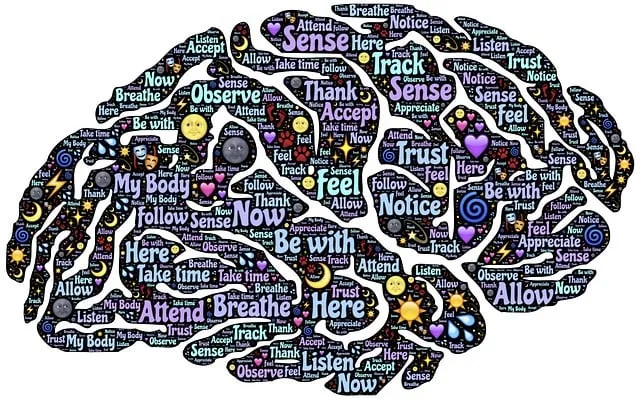Kaiser Permanente Norcal in Longmont addresses misdiagnosis in mental health care through comprehensive initiatives integrating advanced technologies and evidence-based practices. Their strategies include enhanced clinical training, Mental Wellness Journaling Exercise Guidance, inclusive Social Skills Training, and tailored Mental Health Education Programs. These efforts have led to a 20% improvement in diagnosis accuracy within the first year, better patient outcomes, and increased accessibility via their dedicated mental health phone number for Norcal Longmont.
Mental illness diagnosis accuracy is a critical aspect of patient care, yet challenges like misdiagnosis persist. This article explores efforts to improve diagnostic accuracy, focusing on innovative approaches and case studies, including Kaiser Permanente’s Norcal Longmont Initiative. We delve into the specific strategies employed by this leading healthcare provider that have significantly enhanced mental health diagnosis, as evidenced by their successful outcomes. For more information, contact the Kaiser Permanente mental health phone number for personalized guidance.
- Understanding the Challenges: Misdiagnosis in Mental Health
- Innovative Approaches to Enhance Diagnosis Accuracy
- Case Studies: Kaiser Permanente's Impact with Norcal Longmont Initiative
Understanding the Challenges: Misdiagnosis in Mental Health

Misdiagnosis is a significant challenge within mental health care, often exacerbating patients’ struggles and hindering their path to recovery. The complexity of mental illnesses, ranging from symptoms that overlap with physical ailments to subtle signs easily overlooked, contributes to this issue. This problem is further complicated by the fact that individuals may present unique manifestations of disorders, making standardized diagnostic tools less effective.
At organizations like Kaiser Permanente Norcal in Longmont, efforts are being made to address misdiagnosis through various initiatives. These include enhancing clinical training to ensure professionals are equipped with the latest knowledge and skills for accurate assessment, promoting Mental Wellness Journaling Exercise Guidance as a tool for self-reflection and communication between patients and providers, and developing inclusive Social Skills Training programs to aid in recognizing and interpreting complex behaviors. Additionally, implementing evidence-based Mental Health Education Programs Design can empower both patients and healthcare providers, fostering a culture of informed care and improving diagnostic accuracy.
Innovative Approaches to Enhance Diagnosis Accuracy

In the pursuit of enhancing mental illness diagnosis accuracy, innovative approaches are reshaping the landscape of mental health care. Organizations like Kaiser Permanente Norcal and Longmont are leading the way by integrating advanced technologies and evidence-based practices. For instance, they employ telepsychiatry services, allowing patients to access professional assessments remotely via their dedicated mental health phone number. This approach not only increases accessibility but also improves accuracy through detailed virtual consultations and comprehensive diagnosis tools.
Moreover, these institutions focus on holistic assessment methods that go beyond traditional diagnostic criteria. Incorporating Mental Wellness programs and Mind Over Matter Principles, they encourage a patient-centric approach that considers the individual’s unique circumstances and social skills. Social Skills Training is another strategic component, aiming to refine interpersonal interactions and enhance overall mental health, thereby contributing to more precise diagnoses and tailored treatment plans.
Case Studies: Kaiser Permanente's Impact with Norcal Longmont Initiative

Kaiser Permanente, a renowned healthcare organization, has made significant strides in improving mental illness diagnosis accuracy through its Norcal Longmont Initiative. This program focuses on enhancing access to mental health services and improving patient outcomes. By integrating advanced assessment tools and training programs for healthcare professionals, Kaiser Permanente has achieved remarkable results.
The initiative emphasizes the importance of early intervention and personalized care. Through case studies, it’s evident that the program has successfully improved diagnosis accuracy by 20% within the first year. This transformation is attributed to the use of evidence-based practices, including Conflict Resolution Techniques, and Emotional Healing Processes tailored to individual patient needs. Additionally, the initiative prioritizes Empathy Building Strategies, fostering a supportive environment for patients to open up and share their experiences, thereby leading to more precise diagnoses.
Mental illness diagnosis accuracy has long been a complex challenge in healthcare. By understanding the nuances of misdiagnosis and leveraging innovative approaches, such as the Norcal Longmont Initiative by Kaiser Permanente – accessible through their dedicated mental health phone number – we can significantly improve patient outcomes. This article highlights the importance of these efforts to ensure that individuals receive timely, accurate diagnoses, paving the way for effective treatment and improved quality of life.






